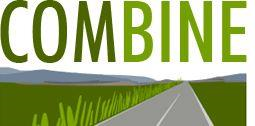
COMBINE – Converting Organic Matters from European urban and natural areas into storable bio-Energy
Project Overview
The energy utilisation of biomass has an important role, as, in contrast to other renewable (wind and photovoltaic), biomass is storable and it is possible to produce storable bioenergy carrier. However, at present the energy production from biomass is often economically inefficient, e.g. through an insufficient utilisation of heat energy produced in conventional biogas plants. Furthermore, the competition with food production on fertile land and the resulting increase of prices for land and agricultural products causes ethical and socio-economic problems. COMBINE seeks to develop a sustainable production and consumption alternative to traditional biomass energy technology chains with the help of the IFBB technology. Most countries and regions in North-West Europe are facing an increasing demand of energy from biomass and bio-fuels.
To face this demand COMBINE develops a two-fold strategy to:
1) Optimise existing biogas and waste water treatment plants by introducing modular IFBB technology and utilisation of, until now, wasted thermal energy to produce storable solid fuels.
2) Explore and exploit new sources of bio-energy from waste materials based on roadside green-cuts, grassland and other organic waste materials and optimising the IFBB fuel production with different raw materials.
Both targets are especially feasible in rural area where these approaches and technologies (IFBB – integrated generation of solid fuel and biogas from biomass) can be introduced to run and improve decentralised bio-energy and fuel production plants.
Project Results
The technology IFBB “Integrated Generation of Solid Fuel and Biogas from Biomass” has been demonstrated by means of the mobile plant – the blue Conrad specifically constructed to investigate the viability of using different kinds of crops (semi-natural grasslands, road side verges, rushes, etc.) often perceived as problem habitats. This study investigated selected fuels from the COMBINE partner regions for their combustion behaviour. The IFBB biomasses from the Partners in Wales, Belgium and France were combusted in 9 test runs, including tests at heat-up phase, full load and partial load of the combustion unit.
Two reports available: 1) Study on combustion characteristics of blended regional fuels; 2) Report on analysis of mass and energy fluxes, plus informative videos
Another interesting output is the collaboration platform: the PROGRASS hub developed by COMBINE and DANUBENERGY projects, which works as incubator for new ideas and a e-learning space.

